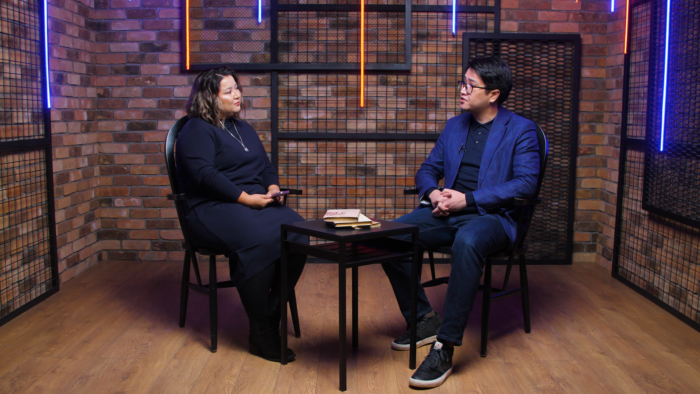ASTANA — In a world marked by turmoil and shifting geopolitical landscapes, Kazakhstan stands as a testament to the art of diplomatic maneuvering. Standing at the crossroads of Russia and China, Kazakhstan maintains substantial connections not only with its Central Asian neighbors but also with a diverse array of countries, including the United States, the European Union, Japan, South Korea, and India.
In an interview with The Astana Times, foreign policy expert Iskander Akylbayev delved into Kazakhstan’s foreign policy, exploring its capacity to embrace multiple identities and nurture mutually beneficial relationships.

“It’s not possible to live in isolation,” Akylbayev emphasized, highlighting the need for increased connectivity and cooperation among Central Asian nations. Photo credit: The Astana Times
“Kazakhstan, since independence, has been trying to navigate through this multi-vector balanced foreign policy,” the expert began, underscoring the nation’s strategic positioning between heavyweight players like Russia and China.
He highlighted Kazakhstan’s rich geography, which extends beyond its Central Asian neighbors to include countries bordering the Caspian Sea, such as Azerbaijan, Georgia, Turkmenistan, and Iran.
“We have a very pragmatic approach,” he continued, “one of the biggest successes of Kazakhstan’s development is to have peaceful and predictable relations with all partners.”
Identity dynamics: Kazakhstan’s ongoing journey
The discussion took a reflective turn as Akylbayev explored identity challenges in the post-Soviet era. The collapse of the Soviet Union forced Central Asian nations to grapple with the question of who they are as nations. For Kazakhstan, a country with multiple confessions and ethnicities, defining a national identity became a complex process.
“For a young nation, it was a task that required so much research,” he said, acknowledging the diverse ethnic and religious tapestry of Kazakh society.
Akylbayev asserted that the issue of identity transcends domestic boundaries, significantly shaping Kazakhstan’s foreign policy stance.
“Your core values and how you look at the world (…) define your foreign policy stance,” he observed, underscoring the interplay between cultural norms and geopolitical strategies. He emphasized the importance of “mental maps” in shaping diplomatic relations, forging alliances based on shared values and mutual understanding, and transcending geographical boundaries.
Akylbayev candidly admitted that Kazakhstan is still defining its identity, describing the post-Soviet era as a “big laboratory” where the nation experimented with various approaches to nation-building. The challenge lies in maintaining one’s identity while embracing multiple facets, such as being a Turkic nation, part of the Muslim world, and simultaneously a Eurasian, multi-ethnic, and multi-confessional society.
“We are wearing multiple identity hats,” he added, emphasizing the importance of preserving cultural heritage while embracing modernization.
Foreign policy and cultural code: a symbiotic relationship
Akylbayev also reflected on his personal journeys of self-discovery while living or studying abroad as a Kazakh citizen.
“Identity comes into question (…) when you are out of the country,” he mused, highlighting the complexities of cultural belonging in a globalized world.
Akylbayev drew parallels between geographical and mental maps, asserting that cultural norms are crucial in defining foreign policy stances. According to him, it is vital for Kazakhstan to finalize its cultural norms as a framework for shaping its foreign policy outlook and to provide a strong foundation for its progressive future.
“Now, with the new idea of building a new progressive Kazakhstan, we have to focus on the culture; it is very important. This is not just a prerogative of the state or the government; it is important to include people from civil society, academia, think tanks, art and media. So, together, we can finalize Kazakhstan’s values and identity. By accepting our past, we can move forward. It is a critical stage that we are in,” he said.
In conclusion, Kazakhstan’s foreign policy trajectory embodies a nuanced balance between tradition and modernity, regionalism and globalism. As a middle power, Kazakhstan is poised to leverage its unique position to foster win-win relationships for the benefit of all stakeholders. In embracing its multi-identity heritage, Kazakhstan charts a path toward a more inclusive and interconnected world.
For the complete conversation, stay tuned for the release of the full video interview on The Astana Times’ YouTube channel in April.

